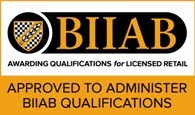What we read into this increase in the numbers of prescriptions written for medication linked to alcohol dependency can vary; either more people are becoming alcohol dependent or more people are trying to address their alcohol dependency.
Undoubtedly with 6769 deaths linked to alcohol in 2008, there are still serious problems with alcohol abuse which we need to continue to fight against.
However it is not all doom and gloom, figures for alcohol related deaths are far too high, but these figures do not reflect what is happening now. Many of the deaths related to alcohol come after long term consumption, so the deaths we are seeing today are actually related to alcohol consumption over the last five, ten or twenty years.
To identify today’s alcohol related issues and those of tomorrow we have to look at a different set of figures and examine the source of the problem more closely.
For example I think many people would be surprised to know that manual workers (men - 64%; women - 46%) were less likely to have consumed alcohol in the previous week than ‘middle class professionals’ (men – 79%; women - 67%).
It is also great news that the percentage of young people (11 - 15 years of age) who have tried alcohol has decreased; 39% in 2003 compared with 48% in this latest survey. The fact that many more young people in the North-east have tired alcohol as opposed to London, I would suspect has as much to do with the ethnic break-down of the two regions, as the so-called North-South divide.
Binge drinking is still a problem with the definition of 3 times or more the recommended daily allowance in a single day (i.e. 9 units for men; 6 units for women) meaning that 1 in 5 men binge at least once a week and 1 in 10 women do the same.
Damaging levels of alcohol consumption are still a problem, everyone involved in the sale of alcohol and the regulation of the sale of alcohol have to continue to work together to combat. The way forward is education and training; education of our young people in particular so that the next generation don’t fall into the traps of this generation and training for alcohol retailers so they play their part and Retail Alcohol Responsibly.
Sometimes the messages we send out should be positive ones, there is progress being made. As much as we have to warn people of the dangers of alcohol, we also have to shout about the successes from the rooftops. People don’t want to be preached at 24/7 it is not always effective, sometimes they want to be part of a success story.
At Beyond The Blue we deliver a number of different courses, which include;
• The Award in Responsible Alcohol Retailing (ARAR) designed for front-line staff to help them meet their statutory requirements;
• The National Certificate for Personal Licence Holders (NCPLH) which qualifies candidates to apply for their personal licence;
• The National Certificate for Designated Premises Supervisors (NCDPS) which provides relevant information for anyone assuming the position of DPS in licensed premises.
• Conflict Management and Resolution training compliments personal development and helps employees deal proactively with Workplace Violence.
• Our Personal Safety for Lone Workers course teaches the core skills to help employees deal effectively with alcohol and drug related personal safety issues.
Please visit our website at http://www.btbl.co.uk/.
For more information on any of our services, please call us on 0845 602 55 95 or Contact Us.
To view the original article please Click Here
Source – Independent
Date – 27th May 2010
Submitted by – Peter Mayhew





